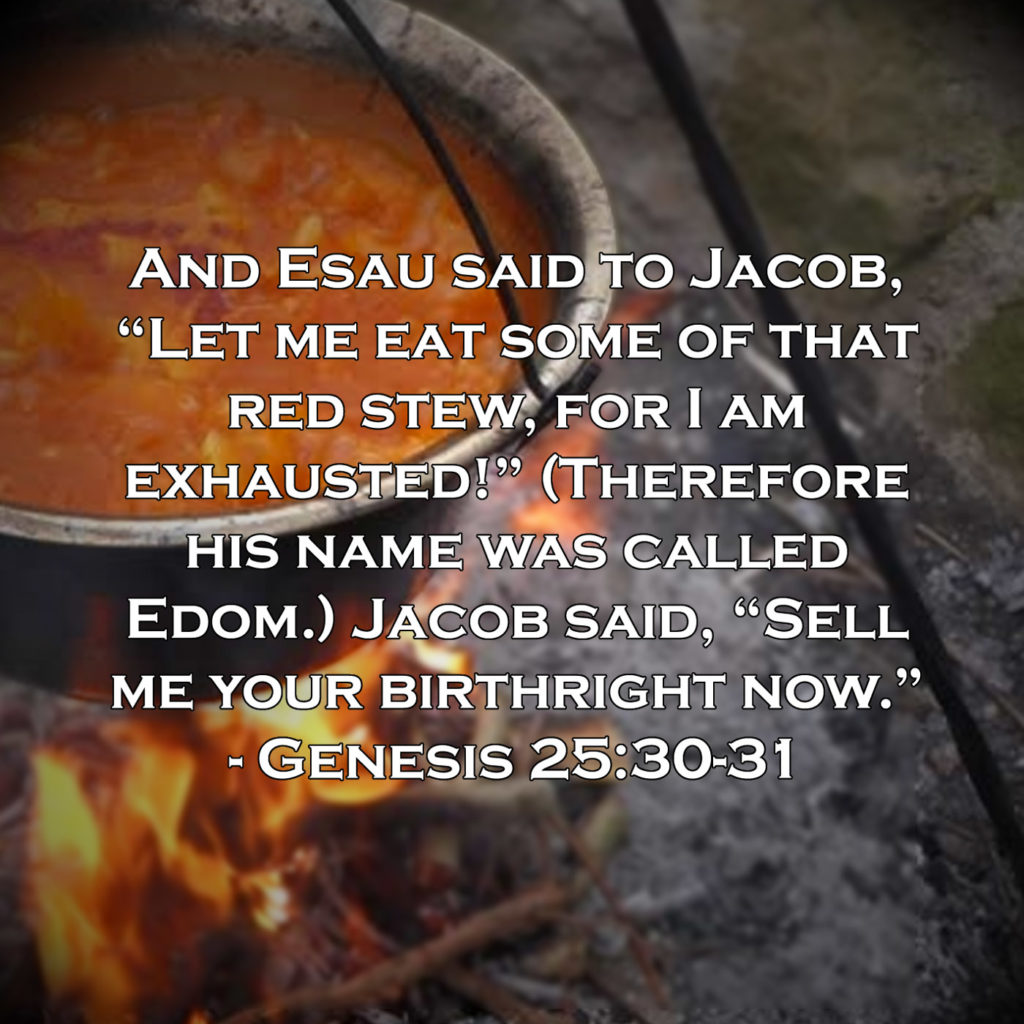
1 Abraham took another wife, whose name was Keturah. 2 She bore him Zimran, Jokshan, Medan, Midian, Ishbak, and Shuah. 3 Jokshan fathered Sheba and Dedan. The sons of Dedan were Asshurim, Letushim, and Leummim. 4 The sons of Midian were Ephah, Epher, Hanoch, Abida, and Eldaah. All these were the children of Keturah.
After the death of Sarah, Abraham remarried. He had six children with this second wife. Afew of these children became the ancestors of notable nations: Jokshan, who was the grandfather of Asshurim, became the ancestor to the Assyrians, Midian became the ancestor to the Midianites, and Sheba likely became the anscetor of Sheba. It is likely that these other children also became tied two one of these two nations, or became ancestors of other nations. Through this God’s promise to Abraham is fulfilled, that he would father many nations.
5 Abraham gave all he had to Isaac. 6 But to the sons of his concubines Abraham gave gifts, and while he was still living he sent them away from his son Isaac, eastward to the east country.
Even though Abraham now has plenty of legitimate children, he does not allow them to share in the inheritance with Isaac. He gives them pliantly of goods in the form of gifts throughout their lives, but Isaac is the sole heir. As they grew older, he would send them off on their own, and ask the text specifically states, “away from Isaac.” Perhaps this was done to ensure none of them would try and kill Isaac and usurp his inheritance.
7 These are the days of the years of Abraham’s life, 175 years. 8 Abraham breathed his last and died in a good old age, an old man and full of years, and was gathered to his people.
Abraham died at the age of 175 years old. Isaac would now be in his seventies, and likely had children of his own, Ishmael would be in his 90s.
9 Isaac and Ishmael his sons buried him in the cave of Machpelah, in the field of Ephron the son of Zohar the Hittite, east of Mamre, 10 the field that Abraham purchased from the Hittites. There Abraham was buried, with Sarah his wife.
Isaac and Ishmael reunited to bury their father. This suggests that a peace had been made between the two. At least for the time of the funeral. They bury Abraham with Sarah, in the one piece of land that was truly purchased by Abraham.
11 After the death of Abraham, God blessed Isaac his son. And Isaac settled at Beer-lahai-roi.
With Abraham now gone, Gods coveneant promise is officially transferred to Isaac, noted in the text as God’s blessing. Isaac is still a traveling herdsman, like his father, without land of his own he settles at Beer-lahai-roi, where Hagar had once encountered God.
12 These are the generations of Ishmael, Abraham’s son, whom Hagar the Egyptian, Sarah’s servant, bore to Abraham. 13 These are the names of the sons of Ishmael, named in the order of their birth: Nebaioth, the firstborn of Ishmael; and Kedar, Adbeel, Mibsam, 14 Mishma, Dumah, Massa, 15 Hadad, Tema, Jetur, Naphish, and Kedemah. 16 These are the sons of Ishmael and these are their names, by their villages and by their encampments, twelve princes according to their tribes. 17 (These are the years of the life of Ishmael: 137 years. He breathed his last and died, and was gathered to his people.) 18 They settled from Havilah to Shur, which is opposite Egypt in the direction of Assyria. He settled over against all his kinsmen.
Before continuing on with the story of Isaac and his family, the text takes a detour to talk about Ishmael, using one of the “these are the generations of…” statements to indicate the shift in the narrative. Ishmael’s narrative focuses primarily on his twelve sons, who become princes of their own nations, in accordance with Gods promise to bless Ishmael, even though he was not part of the covenant. They settle in the lands now known as Syria and Arabia.
19 These are the generations of Isaac, Abraham’s son: Abraham fathered Isaac, 20 and Isaac was forty years old when he took Rebekah, the daughter of Bethuel the Aramean of Paddan-aram, the sister of Laban the Aramean, to be his wife.
Now, with another “these are the generations of…” statement, the narrative switches back to Isaac, and gives a brief update on his life so far.
21 And Isaac prayed to the LORD for his wife, because she was barren. And the LORD granted his prayer, and Rebekah his wife conceived.
Similar to Sarah, Rebekah is shown to be barren. However After Isaac prays for her, God heals her and she is able to conceive. Now this may have taken several years, as it did with Abraham and Sarah, but the text is silent about the struggles that Isaac and Rebekah went through during this time of barrenness.
22 The children struggled together within her, and she said, “If it is thus, why is this happening to me?” So she went to inquire of the LORD. 23 And the LORD said to her,
“Two nations are in your womb,
and two peoples from within you shall be divided;
the one shall be stronger than the other,
the older shall serve the younger.”
24 When her days to give birth were completed, behold, there were twins in her womb.
Rebekah had a tough pregnancy. She likely felt all sorts of weird pains that didn’t seem normal, especially when she spoke with others who had been pregnant. Seeing as she had been barren, she likely would have been very worried about what was happening to her child, if there were health issues or other problems caused by her former condition.
She goes to God in prayer, following in the steps of her husband and father in law. At this time they are likely living in Beer-lahai-roi (literally: where the living God sees me), where God had spoken to Hagar. Such a place would become revered as potentially sacred, and Rebekah likely knew of this. So she goes to the place where Hagar encountered God, and as she prays God speaks. He reveals that she is bearing twins, and that the twins are at odds with each other, and they always will be.
God also reveals that it is the younger Son that will inherit the covenant promise. Rebekah will take that news to heart.
25 The first came out red, all his body like a hairy cloak, so they called his name Esau. 26 Afterward his brother came out with his hand holding Esau’s heel, so his name was called Jacob. Isaac was sixty years old when she bore them.
The first of the twins to be born was covered in red hair, very odd for a baby, and he is literally named “thick haired,” or Esau. His descendants would be called Edomites, a play on the Hebrew word for red.
The second twin was grabbing Esau’s leg, and so he was called the “heel grabber,” or Jacob. The name has many meanings other including trickster, supplanter, and deceiver, but it is from this name and event that we get the phrase “I’m pulling your leg” to describe a playful deception.
27 When the boys grew up, Esau was a skillful hunter, a man of the field, while Jacob was a quiet man, dwelling in tents. 28 Isaac loved Esau because he ate of his game, but Rebekah loved Jacob.
The twins grew up as different as can be, Esau was a masterful hunter, while Jacob took more to home duties. However these differences soon began to drive a wedge between their parents as well. Isaac loved his first born, who would be well placed to receive the inheritance and the covenant blessing from God. He also loved the fact the Esau could hunt and bring home all sorts of wild game to eat. Rebekah however loved Jacob, the younger brother, whom God had foretold would end up ruling over Esau.
29 Once when Jacob was cooking stew, Esau came in from the field, and he was exhausted. 30 And Esau said to Jacob, “Let me eat some of that red stew, for I am exhausted!” (Therefore his name was called Edom.)
After an unsuccessful hunting trip a tired and hungry Esau sees Jacob cooking a red lentil soup, and demands some of it. Between his red hair, and that desire for the red stew, Esau got the nickname “Edom” or “Red.”
31 Jacob said, “Sell me your birthright now.” 32 Esau said, “I am about to die; of what use is a birthright to me?” 33 Jacob said, “Swear to me now.” So he swore to him and sold his birthright to Jacob. 34 Then Jacob gave Esau bread and lentil stew, and he ate and drank and rose and went his way. Thus Esau despised his birthright.
Jacob does not immediately give Esau the stew, but instead asks for something in return, the right as firstborn. Strangely Esau dies not object, but rather says “I am about to die, what use is a birthright?” It is unlikely that he is completely famished from his recent excursion, although that may be how he is acting, rather what he is saying is that, as a hunter he runs the risk of loosing his life every time he ventures into the wilderness. As such he doesn’t even hold his birthright as firstborn.
Now being the firstborn meant that you received the bulk of the inheritance. In some ancient cultures second born children didn’t even receive any part of the inheritance. By selling his birthright, Esau is giving up all of Isaac’s stuff, most of which was inherited from Abraham. He holds it at no worth, simply because he enjoys the adrenaline rush of living outdoors and hunting for food.
Esau and Jacob make an oath, which was legally binding. Jacob, even though he is technically younger that Esau, is to be considered the firstborn son.
